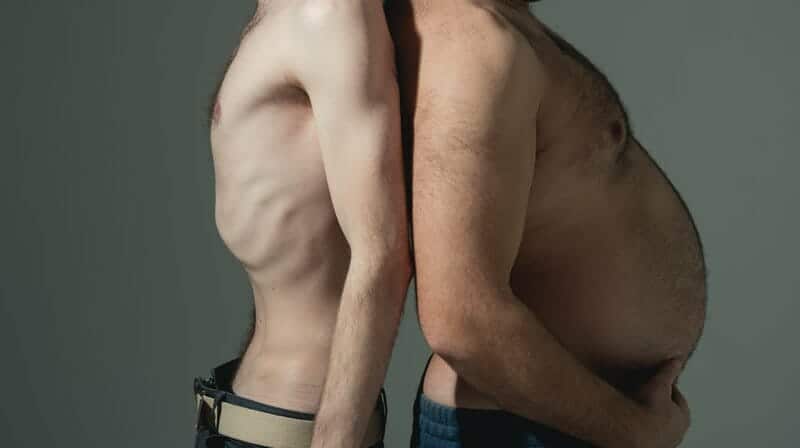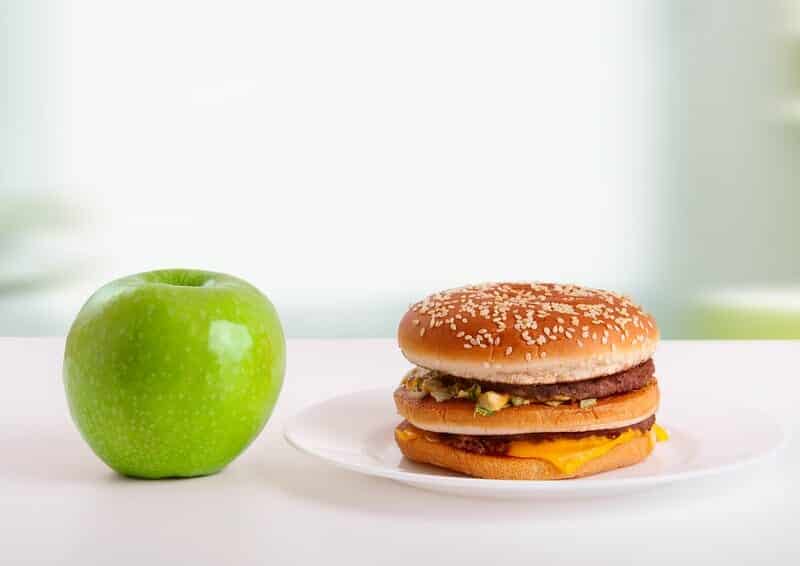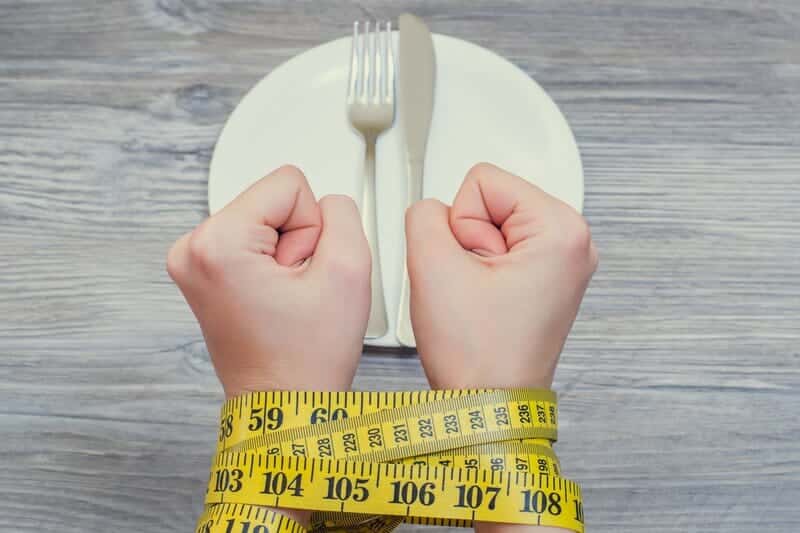There’s no question more infuriating for a fitness expert to get than “Hey man, what’s the best diet for me?”
Especially since you already know the answer: “Well, it depends!”
Body recomposition expert Lyle McDonald does a great job of briefly demonstrating why this question cannot be answered properly:
“One of the most common questions I see/get is “What is the best diet?” as if there could be any single dietary approach that can possibly be appropriate for all people, all situations, all contexts and all environments.
It would be like asking “What’s the best car?” without the understanding that the answer depends on the situation. The best car for a family with kids is not the same best car for a male trying to impress women.
And the same is true of dieting. Best can only be defined relative to the specific context. What is best for an obese beginner is not the same best for a lean bodybuilder or athlete. And there are many other factors that go into what broad dietary approach might be best in a given context.”
WOW – couldn’t have said it any better myself.
But the statement above was written back in 2015.
And since then, I’d like to think I’ve discovered the closest thing to determining what the “best diet” is…for YOU, of course 😉
Table of Contents
ToggleMetabolic Flexibility: What Is It, And How Does It Help You Embrace Your Biochemical Individuality?

Taken straight from my magnum opus Living A Fully Optimized Life:
“Metabolic flexibility can be defined as allowing your body to utilize the best fuel source available (preferably from solid, whole foods) to meet its energy demand…it means you MUST EAT relative to your unique energetic demands and level of performance.”
In other words, metabolic flexibility involves choosing a diet that is best for YOUR condition, experience and/or fitness level.
Sounds straightforward, right?
We can illustrate the power of metabolic flexibility by comparing a jacked bodybuilder to an obese man.
We’ll even make it simpler by focusing on just one macronutrient: Carbohydrates.
The jacked bodybuilder needs a LOT of carbs, but not just any carbs.
He needs to ensure he’s putting high-quality carbs (sweet potatoes, brown rice, oatmeal, yams, etc.) into his body if he wants to stay full and provide his body with the nutrients it needs.
But that’s not quite enough, because there’s another level for our bodybuilding friend.
He also needs to ingest the majority of his carbohydrates at the RIGHT TIME.
This means right before training, during training and right after training is when at least 75% of his carbohydrates for the day should be consumed.
Why?
This maximizes his body’s ability to store and replenish glycogen, thus allowing him to train at an extremely high level of intensity when he’s lifting weights.
The obese man, on the other hand, DOES NOT need a lot of carbs.
Due to the highly sedentary life he likely leads, he simply doesn’t require as many carbohydrates (short of drastically changing his lifestyle).
As I’ve written in The TOT Bible, he probably doesn’t need more than 50-100 grams of carbohydrates per day to maintain his energy levels.
In fact…a low-carb ketogenic diet would probably be the best choice for our obese friend.
High amounts of healthy fats, moderate protein intake, and low carbohydrates.
He’ll be able to utilize his fat stores for fueling performance, and the slightly accelerated weight loss will improve his adherence to the diet.
He could even through in some fasting, which has been shown time and time again to reduce weight and lower blood pressure in patients with metabolic syndrome.
Two different men, two drastically different approaches.
Yet both will succeed because they are being metabolically flexible.
If you remember to practice the principle of metabolic flexibility, 10 times out of 10, things will work out from a health and energy perspective.
Not only does metabolic flexibility apply towards different individuals, it also applies towards different goals.
The diet you follow to build muscle is NOT going to be the same one you use to get down to 5% body fat.
Your energy demands will change as your goals change – this is a fact of life.
Metabolic flexibility allows you to adapt your diet to your ever-evolving health and fitness goals without stress, worry or resistance.
Maintaining this level of flexibility is what allows you to build up maximum muscle mass with minimal fat gain over time.
The Only “Dieting Rules” You Should Religiously Follow

All of this being said, there are a few rules I believe everyone should be dogmatic in following:
#1: Real, solid food should be your primary choice for all forms of macronutrients and micronutrients at least 90% of the time.
Real, organic, wild caught & sustainable food sources should be your first choice whenever possible.
As Jack LaLanne said: “If God didn’t make it, you probably shouldn’t eat it”
This rule is doubly important for people who are obese and in poor health.
You CANNOT afford to eat nutritionally worthless food, especially the ones engineered to make you addicted to their taste (GMO foods, processed junk, etc.).
Not only are you destroying your gut health, you are setting yourself up for a lifetime of inflammation and chronic disease.
If you ARE going to eat these foods, there are a few criteria for you to follow:
- EARN your right to “treats” and “cheats” – lean people can eat them sparingly, obese people should avoid them altogether
- When you do eat them, time them right before and after weight training as your body is primed to best use the excess carbs and fats from those foods.
This also means making protein shakes, bars, powders and artificial foods EXCEPTIONS to the rule.
They are not optimal for anyone regardless of the circumstances, and Living A Fully Optimized Life explores this topic in greater detail.
#2: Know your body type and body fat percentage BEFORE you start dieting.
Precision Nutrition has published an excellent guide on eating for your body type, but I’ll say this much…
Being able to adjust your diet properly has a lot to do with knowing what your body type (I,.e. your somatotype) is well in advance.
You are either a mesomorph (naturally muscular), endomorph (naturally fatter), ectomorph (naturally skinny) or a combination of the two.
With this information at hand, you’ll also want to know your body fat percentage.
A 9-11 skinfold caliper measurement done by a professional, DEXA scan or BOD POD will tell you where you’re at (just be sure to use the same method consistently to accurately gauge progress).
Now that you have two pieces of information at hand, you can figure out the diet that’s best for YOU to achieve fully optimized health.
So if you’re an endomorph who’s skinny-fat, you’ll be better off eating 50-100g grams of carbohydrates per day.
This will give you all the energy you need, while acknowledging the fact that your body simply can’t process carbohydrates very well (due to lower insulin sensitivity).
#3: Never let your diet turn you into a stiff, inflexible loser!

Let’s say you are following a ketogenic diet and you’ve spent the last two weeks at 100% adherence.
Everything seems to be going your way…until you and your wife go out to a restaurant.
You take a look at the menu, and there are no keto-friendly options or substitutions.
What do you do?
Stay home and refuse to go out because you can’t find a perfect keto alternative?
Or do you adapt to the situation, recognizing that a diet is not your entire existence.
One meal is not going to throw off weeks of hard work unless you consciously will it.
Metabolic flexibility allows you be fitter, healthier, leaner and happier without losing your mind.
It helps you lead a better existence, while looking incredible on the outside and FEELING even better on the inside.
Most diet zealots and fanatics understand the first point while forgetting the second.
Don’t make their mistake.
Metabolic flexibility is a LIFESTYLE, NOT a diet!
How To Start Constructing The “Perfect Diet” For Fully Optimized Health
At the end of the day, you already know you need to find something which matches your physique and your current fitness goals.
So with metabolic flexibility fully engraved in your mind, here are some resources to help you get started…
The three books below will give you the situational awareness of your genetics and natural insulin sensitivity to understand the type of foods you should eat, and the ones to avoid.
Deep Nutrition is the best overview I’ve ever seen for understanding how important good food is for optimal health.
The Search For The Perfect Protein is a high-level understanding of how the body uses proteins & amino acids.
Eat Right 4 Your Type talks about how different body types are better acclimated to different diets.
The books below provide macronutrient and micronutrient calculations for men and women of different shapes and sizes.
If you want the ideal list of carbs, proteins and fats you should eat per day (along with how much and when), open them up and start crunching the numbers!
Metabolic Blowtorch Diet is the beginner-level program for people new to fasting for fat loss.
Guaranteed Shredded is the advanced version of Metabolic Blowtorch Diet that’w jam-packed with drugs, supplements and advanced “hacks” to accelerate the speed of fat loss.
The TOT Bible is THE definitive resource for optimizing your testosterone levels and getting your hormonal health back on track.
As with anything in health optimization, personal experimentation is key to discovering what works best for you.
Everyone is a biochemically unique individual, and as such we are NOT created equal.
We are each N-of-1.
Rather than follow a cookie-cutter “one size fits all approach”, you must self-experiment to find an individualized approach so you achieve the best outcomes possible.
It’s the only guaranteed way to find out what works for your unique wants and needs.



